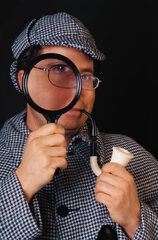- Home
- Guide to This Website
- Take Action for Human Rights
- Disabled
- GHB - Xyrem
- Human Rights
- Human Persons vs Corporations
- Law Enforcement
- Legal
- Mental Health Rights
- Medical Fraud
- PTSD
- Psychiatric Rights
- Residental Treatment Abuse
- Sexual Assault
- Whistleblowers
- Native American
- Women's Rights
- Aertoxic Syndrome
- Food & Drug Administration - Off Label
- The Emperor's New Clothes
- NAFTA Foreign Investor Privileges
- MWAN UN Reports
- Supreme Court Decision - Citizens United
- Do You Know What a Dragon Looks Like?
- Mass Murder and Psychiatric Drugs
- Patients not Consumers
- La Experimentación no Consensual Spanish
- Medical Deferred Action Immigration Cases
- Voting Rights for Residents of the District of Columbia
- Benefits Trafficking
“All human beings are born free and equal in dignity and rights. They are endowed with reason and conscience and should act towards one another in a spirit of brotherhood.”
Universal Declaration of Human Rights
Article 1
Visitors
2326725
About
 Dr. Janet Parker DVM became interested in assisting other Medical Whistleblowers when she realized that the protections promised to Mandated Reporters were essentially non-existent. When responsible ethical doctors, nurses, patient advocates and others within the medical community came forward with complaints about issues related to medical fraud, patient abuse and neglect and human rights violations they were treated like a skunk at the party. If the whistleblower was insistent that their issues be addressed and especially if they demanded an investigation, this courageous ethical choice of blowing the whistle would often spell the demise or even death of their medical career. When facing entrenched corruption the
Medical Whistleblower faces a wall of opposition to change. Retaliation in the form of workplace bullying and outright witness intimidation is the norm not the exception. Naively venturing forward these courageous Truth Tellers often find themselves in a battle to keep their medical licenses against a system that does not permit them due process under the law and often won't even let them know or face their accusers who create false and fabricated statements against them.
Dr. Janet Parker DVM became interested in assisting other Medical Whistleblowers when she realized that the protections promised to Mandated Reporters were essentially non-existent. When responsible ethical doctors, nurses, patient advocates and others within the medical community came forward with complaints about issues related to medical fraud, patient abuse and neglect and human rights violations they were treated like a skunk at the party. If the whistleblower was insistent that their issues be addressed and especially if they demanded an investigation, this courageous ethical choice of blowing the whistle would often spell the demise or even death of their medical career. When facing entrenched corruption the
Medical Whistleblower faces a wall of opposition to change. Retaliation in the form of workplace bullying and outright witness intimidation is the norm not the exception. Naively venturing forward these courageous Truth Tellers often find themselves in a battle to keep their medical licenses against a system that does not permit them due process under the law and often won't even let them know or face their accusers who create false and fabricated statements against them. 
Thus Medical Whistleblower, as an advocacy network, is designed to provide information, emotional and social support to all Medical Whistleblowers. It was discovered that those who might have information about these issues could come from a variety of professional disciples not just within the medical professions - for example a patent attorney might have important patient safety information about artificial hip replacements, an accountant might have insider information about a hospital doing medical fraud, anon related to medical fraud, abuse and neglect can be a Medical Whistleblod a prison guard might have knowledge about mistreatment of prisoners. These persons could be attorneys, NIH researchers, certified public accountants, law enforcement officials, Department of Health investigators, Food and Drug Administration investigators, prison guards, DEA and Customs agents and even airline pilots. So persons from a wide range of professional backgrounds might have evidence of abuse, neglect, medical fraud or human rights violations - all could be Medical Whistlelbowers. Anyone with access to informatiwer. Medical Whistleblower provides informational resources to all regardless of their professional licensing status, their national origin, religious faith, color, disability, sex, sexual orientation, or age, national background.
Medical Whistleblower advocates for those who have already made that choice and those still considering their future path. There is no cost to request support from Medical Whistleblower. Medical Whistleblower is not a counseling service and does not provide legal advice or representation. We are an advocate for change and provide meaningful information related to the Medical Whistleblower’s experience and networking contacts for further advocacy.
considering their future path. There is no cost to request support from Medical Whistleblower. Medical Whistleblower is not a counseling service and does not provide legal advice or representation. We are an advocate for change and provide meaningful information related to the Medical Whistleblower’s experience and networking contacts for further advocacy.
“Here I stand; I can do no other.”
― Martin Luther
Bio
Dr. Janet Parker began her advocacy work with an internship at a residential facility that served children with emotional needs. She went on to attain a Masters in Science in Education (Curriculum Development, Supervision and Administration). Dr. Parker was a trained foster parent and worked with foster child advocacy issues. She worked in humane education as Farm Supervisor at the Massachusetts American Society for the Prevention of Cruelty to Animals and worked to help develop animal assisted therapy in conjunction with Dr. Leo Bustad’s Delta Society Program at Washington State University. At WSU, she took graduate study in neuroanatomy and neuropharmacology at the Washington State University School of Veterinary Medicine and then went on to complete a doctorate degree in Veterinary Medicine and the practiced clinical veterinary medicine for 10 years. Now retired, she works as a human rights advocate providing information and advocacy support for others. In 2010 Dr. Parker was asked to provide input about human rights defenders to the United Nations Universal Periodic Review of the United States as a nation. She has worked on many human rights issues including the rights of the disabled, veterans, whistleblowers, mandated reporters, Native Americans, homeless, crime victims, immigrants and prisoners. Dr. Parker maintains a website with information about human rights and human rights defenders as well as an active petition site. She is also a published author and regularly provides articles on human rights issues on OpEd News as well as on her blog website. Dr. Parker was trained by the Physicians for Human Rights as a NGO screener for victims of torture. Dr. Parker has also taken training in social service provision to the homeless, the disabled, domestic violence victims and crime victims and has training in medical forensics as well. A Doctor of Veterinary Medicine, Dr. Parker graduated from Washington State University in 1991 and was in small animal clinical practice for 10 years. She has an interest in Emergency and Disaster Response and took a course in Bioterrorism Epidemiology through the University of Washington and the CDC. She has an interest in open source data analysis and its use in providing competent technical analysis to governmental decision makers. She has also written as an investigative journalist to web based journal, The New Criminologist, in the UK.
Canary Notes - Human Rights Defenders
"To believe yourself brave is to be brave; it is the one only essential
thing."
- Personal Recollections of Joan of Arc
Mark Twain
The Clue of Silence
In the story “Silver
Blaze” by author Sir Arthur Conan
Doyle a critical piece of solving the crime centers on a clue of silence. In this
mystery story the famous Detective Sherlock Holmes investigates the theft of a
prized racehorse. During the
investigation, Inspector Gregory of Scotland Yard asked Holmes if there was any
particular aspect of the crime calling for additional study. Holmes replied "Yes," and drew
Inspector Gregory’s attention to "the curious incident of the dog in the
night time." Inspector Gregory replied, "The dog did nothing in the
night-time." Holmes said,
"That was the curious incident." So the curious incident was actually
the failure of the guard dog to sound the alarm and to bark during the
intrusion, because this dog was usually alert and barked at every stranger who
approached. The familiarity of the dog with the intruder and the lack of
barking up on the intruder’s arrival pointed to the possibility that the intruder
was not considered a stranger and was instead a trusted person. So the clue of silence suggested evidence
that the dog knew and trusted the culprit. This clue of silence was an important
material fact, and the famous detective then deduced that only those the dog
probably knew and trusted could be the culprit.
This meant there was a reduced the number of suspects. Thus Sherlock
Holmes was able to eventually solve the case of the missing racehorse.
on the intruder’s arrival pointed to the possibility that the intruder
was not considered a stranger and was instead a trusted person. So the clue of silence suggested evidence
that the dog knew and trusted the culprit. This clue of silence was an important
material fact, and the famous detective then deduced that only those the dog
probably knew and trusted could be the culprit.
This meant there was a reduced the number of suspects. Thus Sherlock
Holmes was able to eventually solve the case of the missing racehorse.
The curious fact that Medical Whistleblower noticed was
the absence of the warning to the public of problems that affect public health
and safety. There has been a deafening
silence and lack of alarm that should have been raised by mandated reporters
within their professional capacities and of whistleblowers within the
government. This lack of an effective
alarm system should concern us all.
Without protections for whistleblowers and mandated reporters who report
on problems within governmental and societal systems, we cannot hope to be able
to secure human rights protections for the citizens of the U.S.A. or any nation
anywhere in the world.
"I ask you to judge me by the enemies I have made."
Franklin D. Roosevelt
Creating Social Change
“Nip the shoots of arbitrary power in the bud, is the only maxim which can ever preserve the liberties of any people.”
John Quincy Adams
"I hope that posterity will judge me kindly, not only as to the things which I have explained, but also to those which I have intentionally omitted so as to leave to others the pleasure of discovery. "
Rene Descartes
Foster Care Statistics
· 80% of the US prison inmate population was in the foster care system (US Dept. of Justice, 2005)
· 70% of California's inmates have been in the foster care system (Sacramento Bee article by John Burton
[chairman of the CA Democratic Party and chairs the John Burton Foundation for Children Without Homes)
· Children are 11 times more likely to be abused in State care that they are in their own homes. (National
Center on Child Abuse and Neglect [NCCAN])
· 90% increase of children and youth in the US foster care system since 1987. (Casey Family Programs National Center
for Resource Family Support *CASEY FOUNDATION*)
· 3 out of 10 of the nations homeless are former foster children. (Casey Foundation*)
· Children in foster care are 3 to 6 times more likely to have emotional, behavioral, and developmental problems including:

· Depression
· Difficulties in school
· Impaired social relationships
(Casey Foundation*)
· Approximately 30% of foster children have marked or severe emotional problems. (Casey Foundation*)
· Children and youth in foster care tend to have limited education and job skills and perform poorly in school compared to children NOT in care. (Casey Foundation*)
· Children in foster care lag behind their education by at LEAST one year and have lower educational attainment than the general population. (Casey Foundation*)
· Children in foster care are 5.25 times more like to die as a result of abuse than children in the general population. (CPS
Watch Inc.)
· 2.1 % of ALL CHILD FATALITIES took place in foster care.
**Since "state care is supposed to be a 'safe-haven', the number of fatalities should have been less than the child fatalities of the general population (less than 0.4%). However, child fatalities that occurred while in foster care were 5.25 times greater than that amount." (CPS Watch Inc.)
John Rengen Pharmaceutical Insider Talks
The Value Of Persistence
Medical Whistleblower Advocacy Network
MEDICAL WHISTLEBLOWER ADVOCACY NETWORK
P.O. 42700
Washington, DC 20015
MedicalWhistleblowers (at) gmail.com
CONTACT
Educational Materials from Medical Whistleblower

Medical Whistleblower Canary Brochures
Advice to Medical Whistleblowers
Advice to Whistleblower Supporters
The Spiritual Side of Whistleblowing
Your Problem Solving Personality
PTSD - Emotional and Psychological Symptoms
Effects of Whistleblower Retaliation
Behind the Blue Line - Law Enforcement Whistleblowers
Medical Whistleblower Canary Notes
Bridging the Gap - Communicating Across Disciplines
Martin Luther King Jr. , Title 42 and 1983
White Collar Crime and Criminal Intelligence
United Nations Declaration of Human Rights
"Never impose on others what you would not choose for yourself." Confucius
"It is not the critic who counts; not the man who points out how the strong man stumbles, or where the doer of deeds could have done them better. The credit belongs to the man who is actually in the arena, whose face is marred by dust and sweat and blood; who strives valiantly; who errs, who comes short again and again, because there is no effort without error and shortcoming; but who does actually strive to do the deeds; who knows great enthusiasms, the great devotions; who spends himself in a worthy cause; who at the best knows in the end the triumph of high achievement, and who at the worst, if he fails, at least fails while daring greatly, so that his place shall never be with those cold and timid souls who neither know victory nor defeat."
Theodore
Roosevelt- Excerpt from the speech "Citizenship In A Republic",
delivered at the Sorbonne, in Paris, France on 23 April, 1910